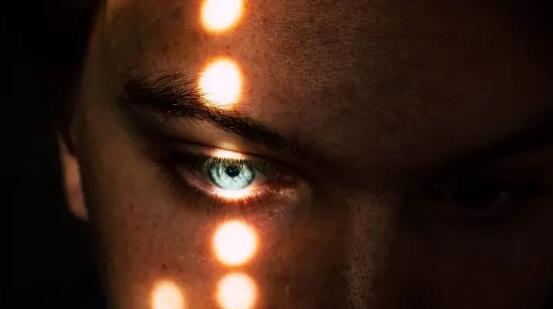CRISPR is coming for your body. While that may sound like the tagline of a horror film, it's potentially the future of medicine, as the gene-editing technique is about to be used for the first time inside the bodies of presumably willing patients.
CRISPR(成簇规律间隔的短回文重复序列,近年来被认为是原核生物适应性免疫结构)即将进入你的身体。虽然这听上去可能有点像一部恐怖电影的口号,但这也许是医药研究的未来,因为基因编辑技术将首次被用于想必是自愿接受的病人的身体上。
The first trial could be an impressive feat of modern medicine: Scientists hope to use CRISPR's gene-editing magic to restore sight to people with an inherited form of blindness called Leber congenital amaurosis.
这次尝试可能是现代医药的一次令人印象深刻的壮举:科学家希望利用CRISPR基因编辑的魔力来恢复遗传性失明(又被称为莱伯士先天性黑朦)的人的视力。
It's the most common cause of inherited childhood blindness, occurring in about 2 to 3 of every 100,000 births, according to the AP.
据美国联合通讯社报道,这是儿童遗传性失明最常见的原因,每十万个新生儿中就会有2~3个人患有遗传性失明。
People with the disease lack just one gene, the gene that converts light into signals to the brain and lets the eyes do their job.
患有这种疾病的人只缺少一种基因,这种基因把光转化成信号并传入大脑,然后使眼睛发挥作用。
The hope is that adding that gene through a one-time CRISPR treatment will cure them, permanently editing their DNA and letting them see.
希望通过一次CRISPR治疗就可以植入这种基因,并治愈这种疾病,使DNA被永久性编辑,让他们得见光明。

This is undoubtedly a more noble use of CRISPR than making spicy tomatoes.
比起制造辣味的西红柿,这无疑是CRISPR技术的一项更崇高的运用。
It's a good trial for the cutting-edge—and controversial—technology, because there's already some solid proof that the disease is treatable on a genetic level.
对于这项先进且有争议的技术而言,这是一次不错的尝试,因为已有可靠的证据表明这种疾病在基因层面上是可治疗的。
Thanks to a gene therapy called Luxturna, which is already on the market, scientists know that injecting a replacement gene into cells in the retina can cure the ailment .
多亏已经上市的Luxturna基因疗法,科学家了解到向视网膜中的细胞注入一种替代基因可以治愈疾病。
CRISPR would work by similarly delivering new genetic material to the eye, giving researchers the perfect testing ground for using the new medical procedure in humans, before turning to more complicated diseases like cancer.
CRISPR同样通过把新的遗传物质植入眼睛来发挥作用,这在转向用其研究治疗癌症这种更复杂的疾病之前,为研究人员在人类身上使用这种新的医疗程序提供了完美的试验依据。
Two companies, Editas Medicine and Allergan, will test the technique in up to 18 people at hospitals around the United States, starting this fall.
在美国周围的医院里,艾迪塔斯医药公司与阿勒根两家公司将于今年秋天开始在多达18人身上测试这种技术。
The new study will test children at least 3 years old and adults with a range of vision.
这项新研究将在视力情况不同的三岁以上的儿童及成年人身上进行测试。












